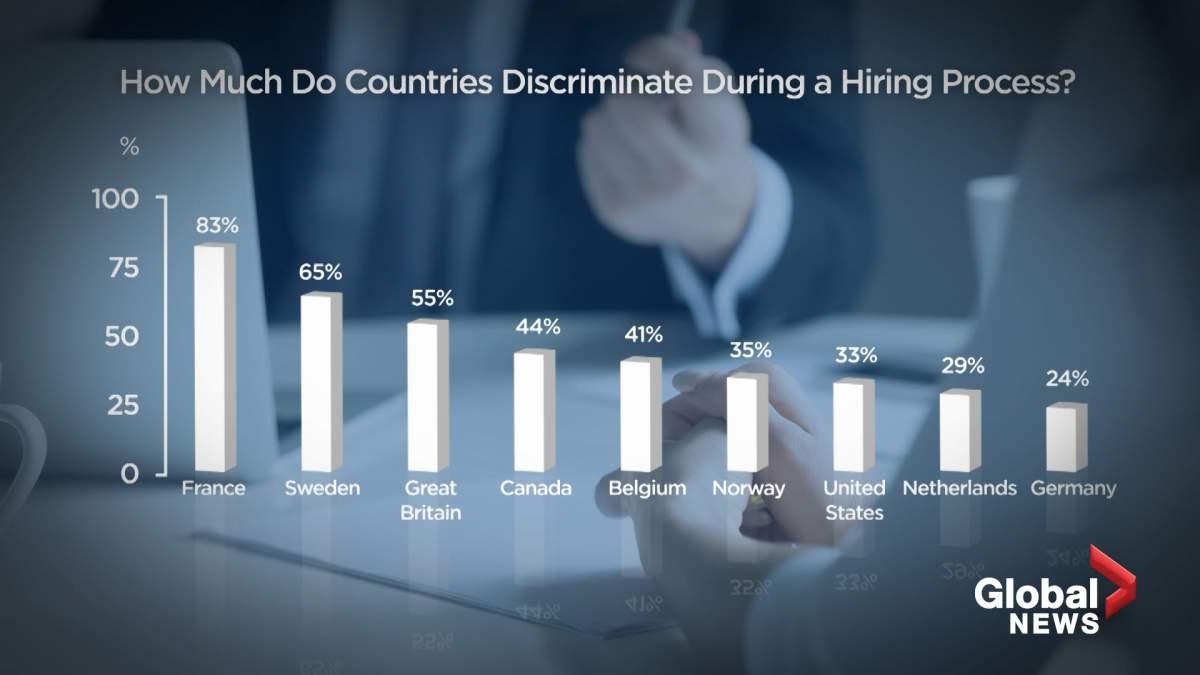Many people around the world apply for jobs and then eagerly wait for an interview. But only a select few get that callback and there are a lot of factors that go into that, such as experience.

But a study out of Northwestern University found there may be another reason why some people aren’t hearing back from prospective employers and it has to do with race.
“We found racial and ethnic discrimination against non-white groups was really quite ubiquitous across countries,” says sociology professor Lincoln Quillian, who led the study. “So there were really no situations in which the majority members of the white group were more discriminated against than minority members were.”
The study took data from 97 previously conducted field experiments looking at the hiring process in nine countries. The experiments used fictitious resumes with the same information but different names.
Quillian and his team measured discrimination by calculating the percentage of interview callbacks for applicants with names that signalled non-white race or ethnicity and those that signalled white ethnicity.
France and Sweden ranked the highest out of the nine countries studied for the level of discrimination shown during the hiring process.

Get daily National news
This was followed by Great Britain, Canada, Belgium and Norway. The U.S., the Netherlands and Germany had relatively lower levels of discrimination.
The study only included countries where at least three research experiments had been done on this subject.
“If anything, I would suspect a little bit that the countries that we data on have perhaps less discrimination than countries we don’t have data on, in part because countries that had done a lot of field experiments of discrimination — that reflects the fact that there’s concern in the country about the issue of discrimination,” says Quillian.
Sheila Block, senior economist at the Canadian Centre for Policy Alternatives, says her perception is that “racism is alive and well in the Canadian job market.”
“It’s not the way we like to think of ourselves or this story that we tell ourselves,” says Block, who recently did a study on inequality in Ontario and Canada’s labour markets. “But the data pretty clearly shows that there are differences in employment, in unemployment and in pay rates.”
Block says this bias is often unconscious.
“Very few people wake up in the morning and decide they want to be discriminatory,” she says. “What people need to do to address this is to look at their employment systems. So the first thing that you need is you need some data and you have to look at it and say, ‘Does my workforce reflect the population around us?’ And if it doesn’t, who’s not at the table, who’s not being hired and why aren’t they being hired?”
With the right changes, the hope is the most qualified people will get that callback.
- Federal government raises concerns over OpenAI safety measures after B.C. tragedy
- Free room and board? 60% of Canadian parents to offer it during post-secondary
- Ipsos poll suggests Canada more united than in 2019, despite Alberta tensions
- Indigenous leaders outline priorities for spring sitting of Parliament









Comments
Want to discuss? Please read our Commenting Policy first.